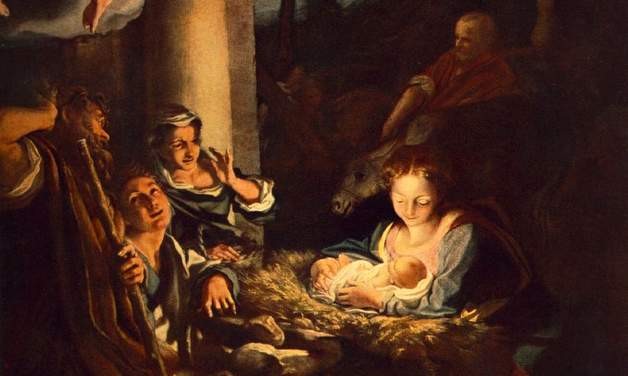My mother is not easily defeated. In high school I would often sleep past my alarm, but she was determined to get me to school on time. Being stubborn, I grew immune to her regular tactics of calling up the stairs and yanking off the sheets. My mother, however, was unfazed and eventually found one unusual yet effective method to achieve her purpose.
Our family provided foster care for newborn babies, and this gave my mother the chance to deploy her little secret weapon. One morning, she walked up the stairs with a baby boy, about three months old, and placed him right next to me in bed. Knowing that my foster brother was hungry, she put a bottle on the other side of the room and then walked down the stairs.
What could I do? I tried to fall back asleep, but my foster brother was not too sympathetic. After a few moments of squirming around in his new surroundings, he began to voice his impatience. No empty promise of future food could placate him, so I got up, took my baby brother into my arms, retrieved the bottle, and fed him. My mother had won. She was well aware that there’s no snooze button on a hungry baby.
My mother’s usual methods aimed to wear me down, but this baby handoff was something different. Caring for a baby is not a matter of coldhearted obligation but rather a loving responsibility, even for a sleepy teenage boy. An infant so clearly needs to be cared for, and this makes them all the more lovable. The incessant beeping of an alarm clock offers little motivation, but to love someone, especially someone who needs you, is worth getting out of bed for.
In her wisdom, my mother modeled God’s approach to drawing us to Himself. In the fullness of time, He gave His Son to a world that sat in darkness, perhaps because they hit the snooze button one too many times. As with my foster brother, the Father placed Jesus right into our very midst, and He came hungry. Even though He is the bread come down from heaven given to the world for its salvation, this Bread of Life cried out for Mary to nurse Him when he was an infant. He came to feed us, but first He humbles Himself to be fed by us.
We see this also at the well in Samaria. Jesus, the source of living water, asks a woman for a drink from the well. She protests that He, a Jew, is asking for a drink from her, a Samaritan. Yet is it not more surprising that God is asking His creature to provide for His needs? By the end of the exchange, the woman comes to believe in Christ. She is not alone in doing so: by her testimony, many from her town come to believe as well. They no longer sit in darkness but now enjoy the life of faith, and it all began with Jesus, seemingly helpless, sitting by a well without something to draw with, asking a stranger for a drink of water.
This paradox is made more explicit in the scene of the Judgment of the Nations from Matthew 25. Jesus here identifies Himself with the hungry, the thirsty, the stranger, the naked, the sick, and the imprisoned. His needs are quite straightforward: feed me in the hungry, clothe me in the naked, etc. He came to serve us, but, in a mysterious way, He invites us to serve Him by these simple acts of love. He does not wish to be served as a worldly king, with royal grandeur, but rather as a beggar.
All of this culminates in the cross. Jesus saves us not by some great show of worldly power but by the complete gift of Himself in utter weakness and helplessness. And in this state he cries out, “I thirst.” From His pierced side, blood and water flow out as a fountain of mercy, and yet He still thirsts. He thirsts for us.
This is the divine wake-up call. As our Father, God set about waking us from the sleep of sin and death into the light of His love. No alarm clock could do it—we would only find the snooze button and eventually just turn it off. Instead, He placed His Son into our arms as a hungry baby. For in reconciling us to Himself, God not only loves us, but He also enables us to love Him.
This wake-up call is for us. In varied ways, God comes to us in the guise of the hungry and poor, in all the senses of these terms. But before we get too concerned with the practical, let us first cultivate a sense of wonder before our God who comes to us so lowly, seeking our love. For if we savor His presence in the manger, at the well, and on the cross, then our gratitude will manifest itself in love whenever God comes to us as a stranger, a sick person, or even as a hungry baby. For just like my mother, our heavenly Father does not easily give up on us.
✠
Image: Adoration of the Shepherds (The Holy Night), Correggio







